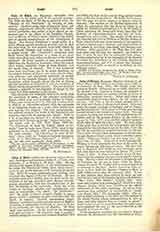

John of Paris (called also QUIDORT and DE SOARDIS), theologian and controversialist; b. at Paris, date unknown; d. at Bordeaux, September 22, 1306. Having obtained the degree of Master of Arts with distinction, he joined the Dominican Order, when about twenty years of age, at the convent of St. James in his native city. There he taught philosophy and theology, and obtained the degree of Master of Theology. He was endowed with great ability, was the most subtle dialectician of the age, possessed great literary and linguistic attainments, and was considered one of the best theologians of the university. Some ten of his works on theology, physics, and metaphysics, still exist in manuscript; two others, “De Antichristo” and “De modo existendi corporis Christi in Sacramento altaris”, appeared in print centuries after his death. A treatise, “Contra corruptorem Sancti Thomae”, published in 1516 under the name of Aegidius Romanus, is commonly attributed to John of Paris; it was certainly not written by Aegidius. All these show vast erudition. In his work on the temporal and spiritual power, “De potestate regia et papali”, written during the controversy between Boniface VIII and Philip the Fair, he favors the king, and advances some untenable propositions. He holds, for instance, that the pope, for grave crimes, e.g. heresy, may be deposed. The treatise on the Blessed Sacrament, in which he maintained that the Body of Christ is, or might be, present by assumption (i.e. by the body of Christ assuming the bread and wine), and that the doctrine of transubstantiation was not of faith, brought him into trouble. The faculty of the university reported the error to William of Baufet, Bishop of Paris, who forbade him under penalty of excommunication to defend such a doctrine, and deprived him of the offices of lecturing, preaching, and hearing confessions. John appealed to the Holy See, but died soon after, and the case was dropped. In justice to him, it must be said that he advanced these propositions tentatively; for in the beginning of the treatise he writes that he believes in the Catholic doctrine of transubstantiation, and if it is shown that transubstantiation is of faith, or should it be defined, he will willingly retract.
VICTOR F. O’DANIEL

